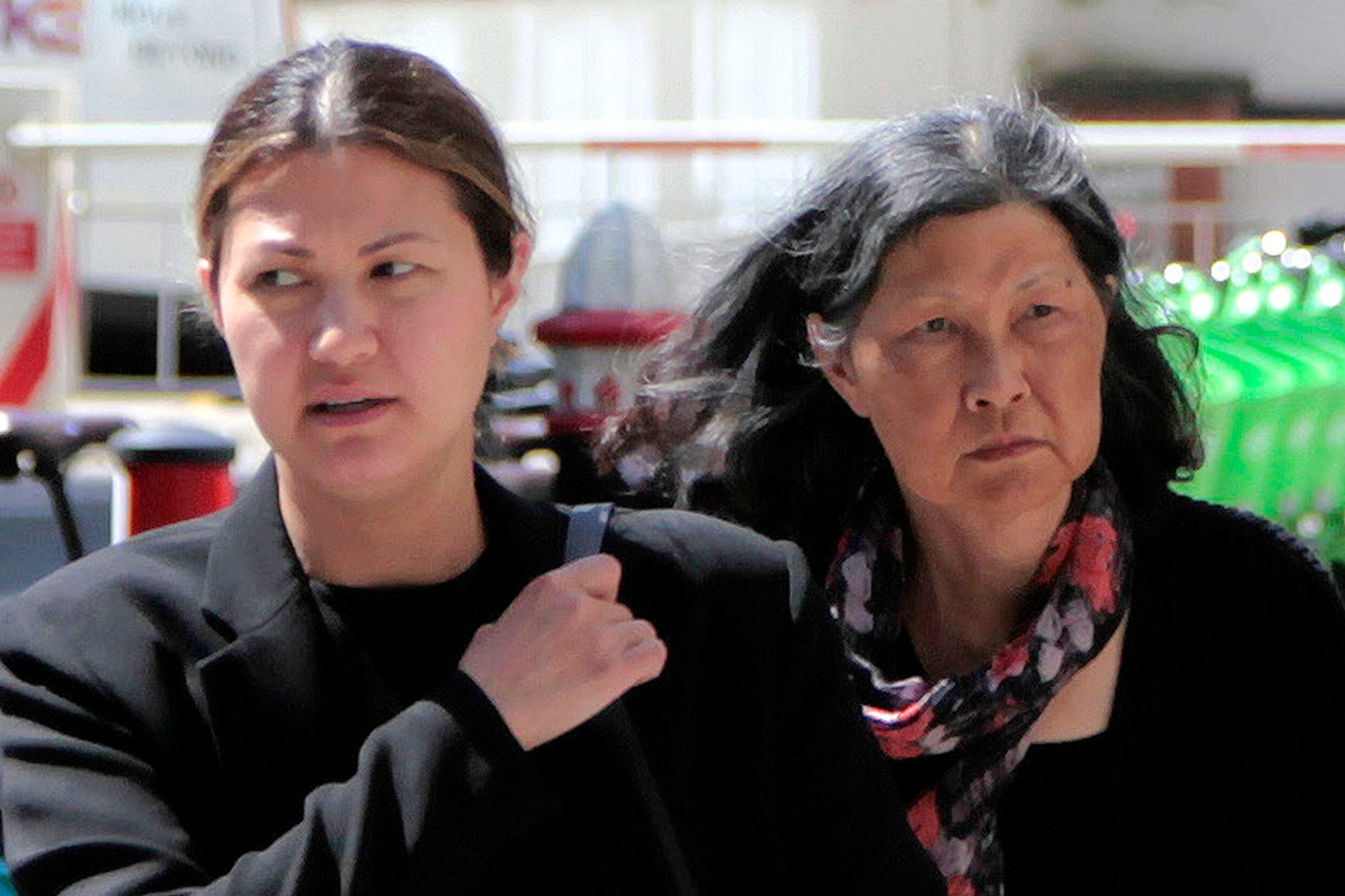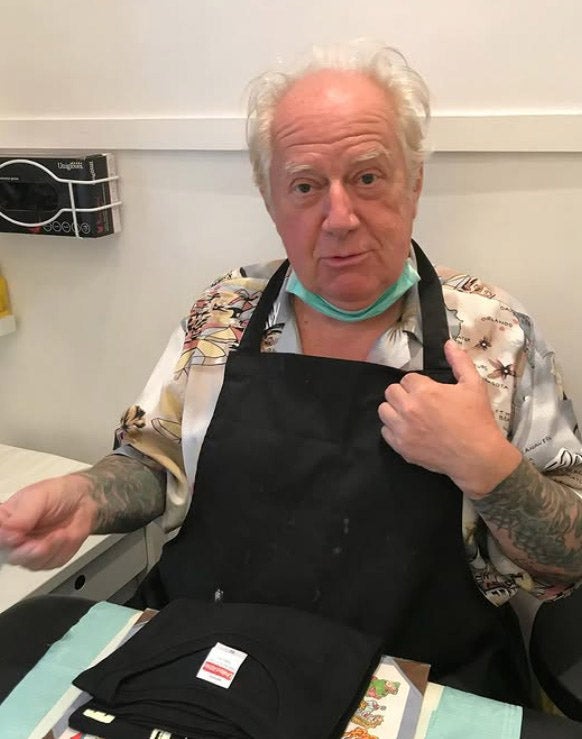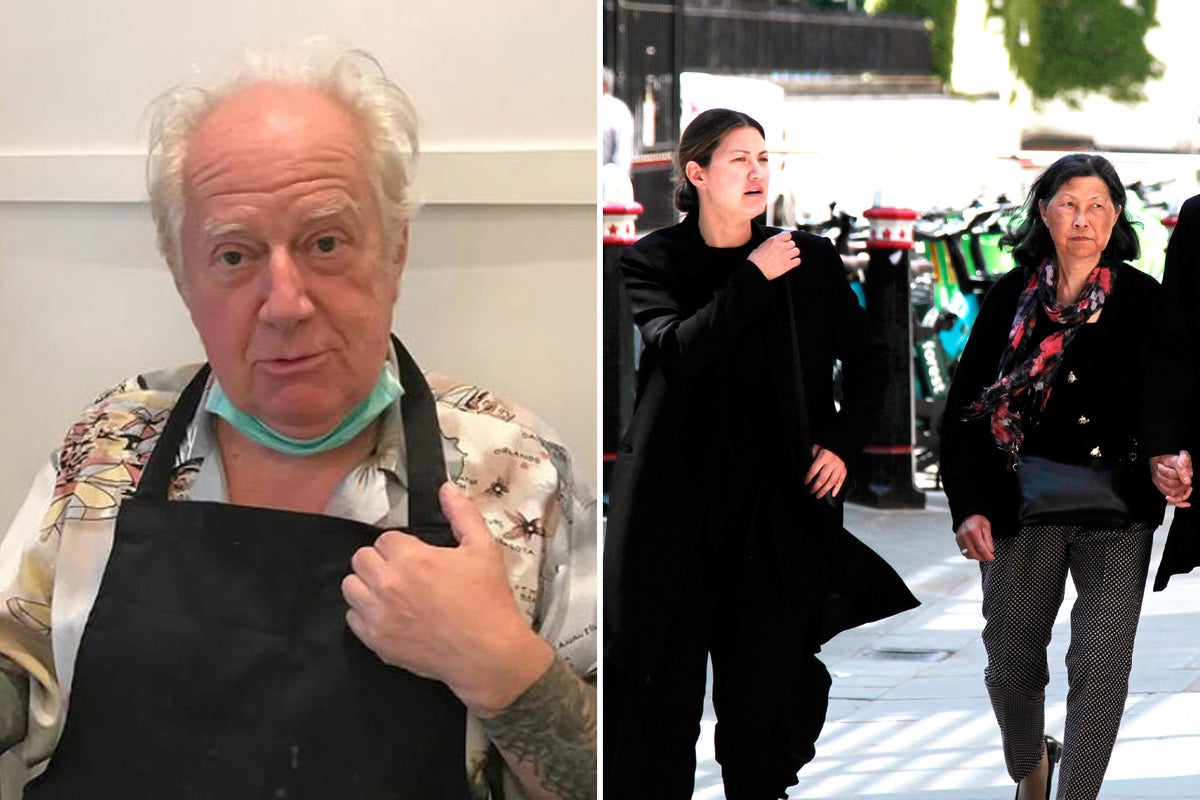The estate of a legendary tattoo artist who became the Queen’s handyman is at the centre of a High Court inheritance court fight between his widow and his “secret” daughter in Australia.
Dennis Cockell operated out of his “Diamond Jacks” studio in Soho and became the go-to tattooist for London’s music scene in the 1980s, inking stars including Adam Ant and members of the Sex Pistols, Stray Cats and Bananarama.
He retired from tattooing in 2007 after beginning a second career as a handyman at Buckingham Palace, but continued to make guest appearances at studios until his death in 2022 at the age of 74.
Now, the £413,000 estate he left behind is at the centre of a High Court tug of war between his wife of 40 years and mother of five of his children, Fong Yuet Cockell, 65, and a daughter in Australia whom she had never heard of before.
Fong only discovered the existence of 57-year-old Cindylee Cockell when she filed a claim for “reasonable provision” from Dennis’s estate, before proving he was her dad through DNA testing.
Cindylee now claims she is entitled to a share because the “overwhelming grief” following the deaths of both her father and mother shortly afterwards left her so depressed and anxious that she is unable to work.

She is suing her dad’s widow, who inherited all of the tattoo legend’s wealth, and her half-sister Natalie Fong Cockell, who is acting as executor of his estate, seeking £42,500 plus a valuable sheet of her dad’s tattoo flash, said to be worth thousands.
But the widow is fighting the claim, denying that Cindylee is so grief-stricken that she can’t support herself financially and arguing that she could be forced to sell her home if ordered to make the payout her husband’s daughter is demanding.
Originally from Worcester, Dennis Cockell shot to fame in 1980s London after tattooing stars including Sex Pistols guitarist Steve Jones, TV presenter Paula Yates and punk rockers 999 and Adam Ant.

His first London studio was on Finchley Road before he set up “Diamond Jack’s” in Soho, close to the Raymond Revuebar.
He married Fong in 1982, and the pair raised five children together in a £900,000 home in Mill Hill, north London.
As his tattooing career wound down, Dennis took on a new role as an “odd-job man at Buckingham Palace” during the reign of Queen Elizabeth II. The widow’s barrister, Nicholas Michael, told the judge, Deputy Master Timothy Bowles, he was being paid £14,500 a year for his efforts towards the upkeep of the Royal estate.
But unbeknownst to his wife, he had fathered a child from a previous relationship. The court heard that Cindylee claims he had promised to support her financially and to bring her from Australia to London to work before his death.

Giving evidence via a videolink from Sydney, Australia, where she lives, Cindylee told the judge that she had been two years old when she learned that Dennis was her dad.
She had visited him in London four times before his death and the pair had made plans that she would move to the city and be employed by him at £23,000 a year in one of his tattoo parlours as a receptionist once her three children had finished school, she said.
She had formerly worked as a nanny and a PA but is now on “Australian Jobseekers Allowance” having been signed off by her doctor as incapable of working for “years” due to severe “anxiety and depression”, which she says was triggered by the death of Dennis followed shortly by that of her mother a few months later.
She told the judge that she needs the money from her dad’s estate because he promised to support her, is incapable of looking after herself by working at the moment and has “exhausted” her savings.
“The death of my father and mother had a devastating effect on my day-to-day life,” she told the judge. “I have anxiety and depression, which have been exacerbated by overwhelming grief.”
However, Mr Michael, representing Dennis’ widow, rejected the claim that Cindylee is unable to work and argued the estate owes her nothing.
He said that Fong had been forced to sell the £900,000 house she shared with Dennis because she could not afford to keep it on after his death and the costs of downsizing have left £413,000 in the estate, which she now needs all of to live.
“Fong is registered disabled and suffers [from] depression,” he said. “She is too old now to work.
“Fong, who is the sole beneficiary, was in a long marriage with the deceased and they were dependent on a joint income and latterly on the deceased’s pension.
“Fong’s income is plainly inadequate and does not match her needs. A successful claim would force Fong to sell her home.
“The deceased had no obligations and responsibilities towards Cindylee, but was married to Fong, and she depended on the deceased financially and emotionally.
“Fong was unaware of Cindylee prior to the claim and required her to prove that she is the biological daughter of the deceased.
“Cindylee is an adult who is either in work or is capable of finding work and, in fact, working and there is no cogent or reliable evidence to suggest otherwise.
“It is apparent that Cindylee is able to sustain her station in life via the benefits she receives, and there is no cogent or reliable evidence to suggest otherwise.
“Cindylee’s financial resources match her financial needs. It is averred that even if Cindylee suffers from depression/anxiety, this does not prevent her from working.
“Cindylee was estranged from the deceased until she was eight. After that she only met him on a few sporadic occasions and she has never been financially dependent on the deceased.
“Cindylee has failed to satisfy the test… that the provision was necessary for her maintenance to enable her to discharge the cost of her daily living at the standard appropriate to her.
“The claim should be dismissed.”
The judge is expected to reserve his decision until a later date.



